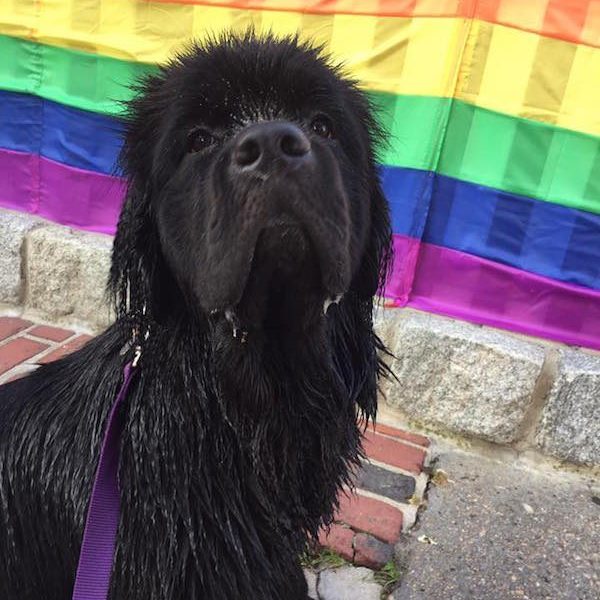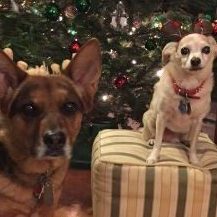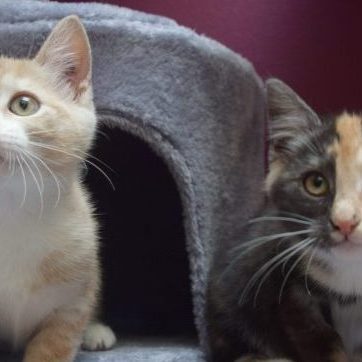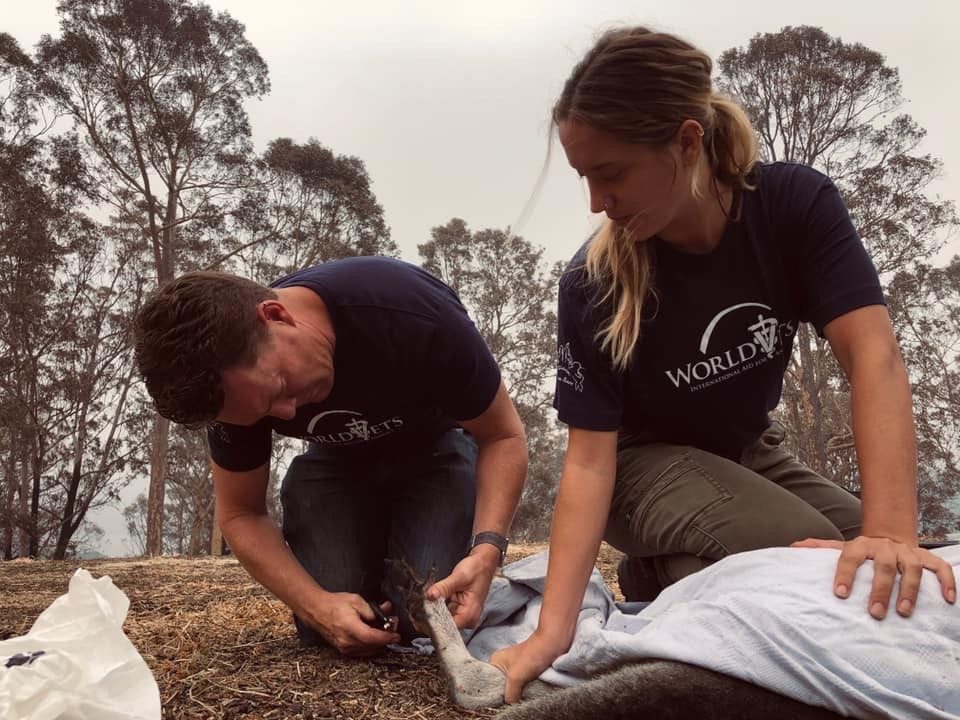
Sydney Animal Hospitals deployed a veterinary disaster response team on Monday in conjunction with World Vets to assist in animal welfare efforts in bushfire affected areas of the South Coast of NSW.
Specifically to help wildlife, companion animals and livestock directly impacted and working with local vets, who are already struggling with loss of property and personally and professionally demanding conditions.
Sydney Animal Hospital practice owner, Dr. Ben Brown, has travelled with a small team of vets and a nurse to assist local veterinarians and government vets in the area around Bega, Cobargo and Eden.
On Tuesday 7th January they left Sydney with a ute & sedan filled with $15,000 worth of animal health supplies such as pain relief, burns creams and bandages and antibiotics.
‘This is an unfolding human and animal disaster that will take many months to resolve’, Dr Ben Brown.
Dr Ben has set up a GoFundMe page with ALL FUNDS go directly towards the purchase of veterinary supplies for affected areas. Vets and nurses are donating their time and will not receive any funds;
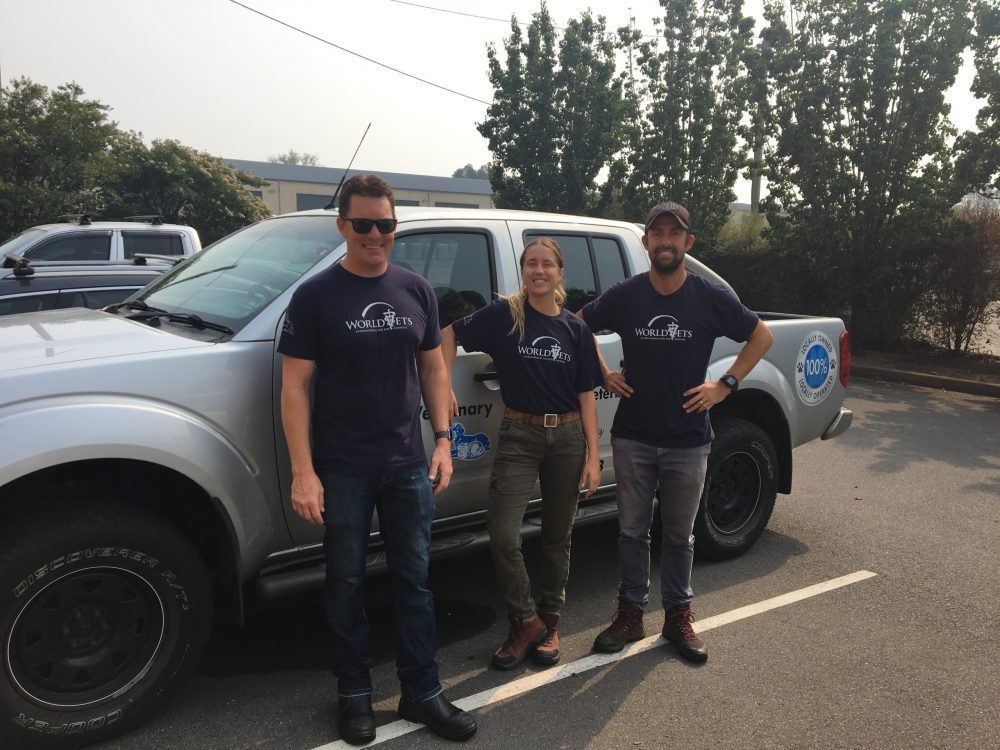
More information…..
As a World Vet Disaster Relief Volunteer Veterinarian, Dr. Ben Brown, has been up close and personal with distressing and overwhelming situations before.
In 2015, he provided service as part of the Disaster Response team for the 2015 earthquake in Nepal. But having recently been called upon to respond to the devastating bush fires within his own country, this deployment has a personal resonance that is unavoidable.
Although Australia is no stranger to bush fires, drought conditions and rising global temperatures have created tinderbox conditions resulting in bushfires reaching historically epic proportions with catastrophic results. An estimated half billion animals have died, some of which are endangered species now facing extinction.
Some 11.3 million acres have been decimated.
The Australian ecosystem is home to hundreds of unique species of animals many of which were already under significant threat before this disaster. It is estimated a third of the koala population has been destroyed.
Dr Ben volunteers his time with World Vets on a regular basis and knows firsthand the positive impact veterinarians can have through disaster response. ‘As veterinarians, our skills are so important in addressing the needs of animals impacted by natural disasters. Through careful liaison with private and Government Vets it is possible to have a meaningful positive impact for animals in these crises.
Dr Ben said ‘Personally, I’m overwhelmed at the loss of life, both animal and human, I feel we all have a personal duty to do what we can to help.’
Within the first 48 hours, the World Vets team including Dr Ben, Dr Simon and Veterinary Nurse, Sami established contact with local and government vets, acquired an arsenal of the most needed medical supplies, and began assisting in the field.
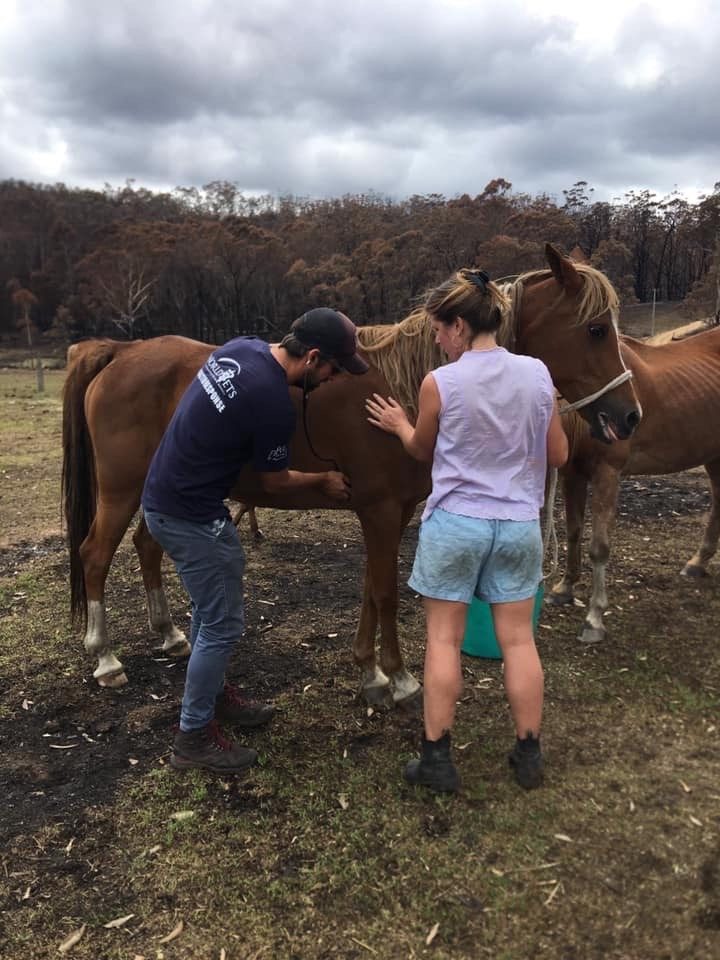
Driving through smoke and miles of evidence of the burn, they reached the region of Bega and Cobargo.
Assistance from the team was welcomed with enthusiasm from local veterinarians, many who are solo rural practitioners who have been overwhelmed responding to injured animals. Dr. Ben explained that there are several different categories of need, and the team is responding accordingly.
The large scale of the disaster has made communication and coordination a challenge. The team began their assessments at an evacuation centre set up for families that were forced to leave their homes, many of which have been lost to the blazes. Included in that family are cats and dogs that also fled the rapidly moving fires. This evacuation was stressful for a lot of pets who are now in a foreign environment.
Health and welfare assessments were carried out by the team. Evacuation centres have also been a primary hub for injured wildlife. The team has assisted in assessment, treatment and referral to dedicated wildlife centres within the region.
The most effective assistance has been through collaboration with local government veterinarians, the RSPCA, and wildlife centres. This has included direct veterinary assessment, treatment, and donations of food and medical supplies to where it is most needed.
“We are seeing a lot of onset of symptoms of smoke inhalation and evidence of burns in cats, dogs, horses, cattle and the native wildlife, including a Wallaby which was treated for severe burns on the feet.”
Each day provides new information and leads on areas where animals require immediate assistance. The team will continue to respond to these needs and to collaborate with wildlife centres, temporary shelters for domestic animals, and assistance with the RSPCA.
World Vets, working direct in collaboration with Sydney Animal Hospitals, will continue to provide veterinary services, medical supplies and expertise as this disaster continues to unfold.
Unfortunately, an end is not in sight as normal seasonal increases in temperature, and developing storms related to the fires, could perpetuate the situation.

